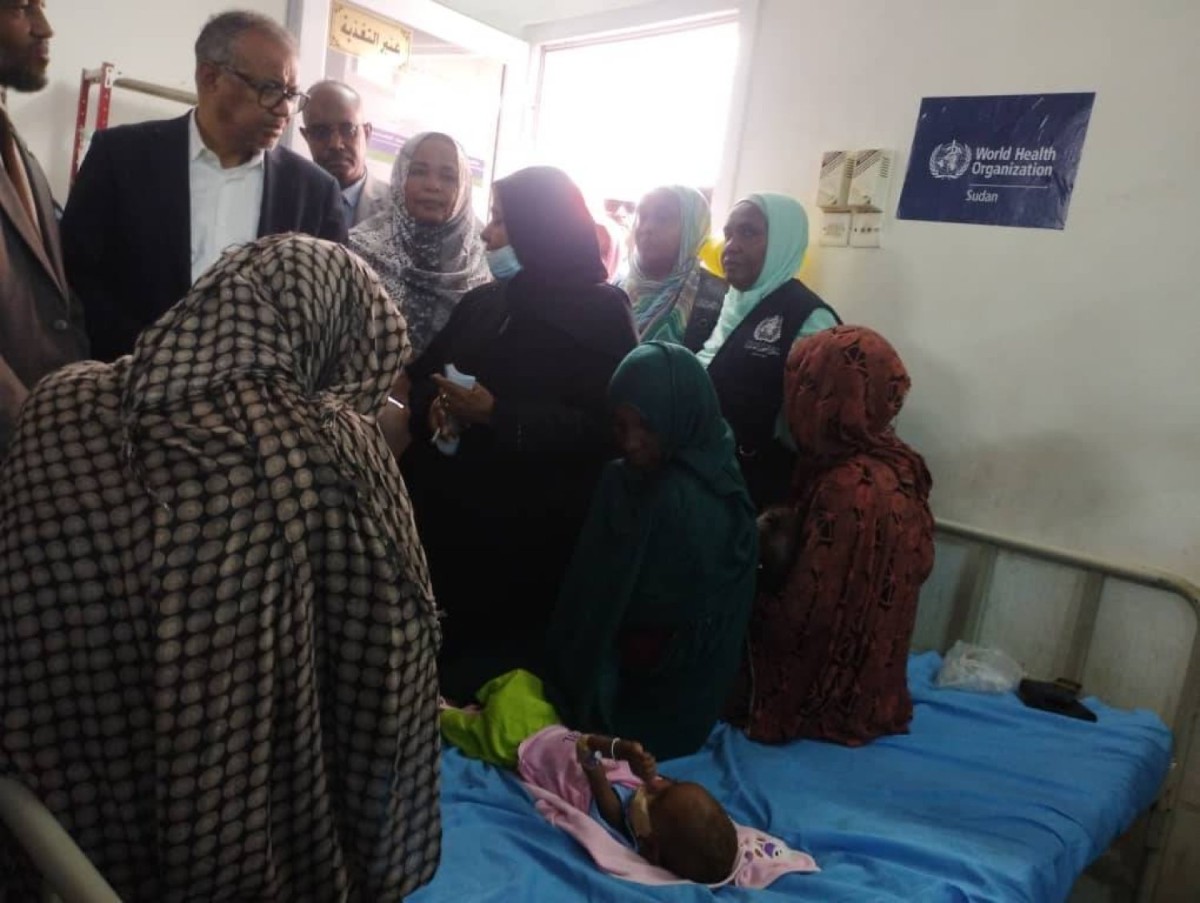World Health: The health situation in Sudan is collapsed


The World Health Organization said that the health system in Sudan is “collapsed and complex in a number of regions, and cohesive in other regions due to the great efforts made by doctors in providing services to patients in these difficult circumstances.” The Director of the World Health Organization, Tedros Adhanom Ghebreyesus, arrived on Saturday in the city of Port Sudan, the temporary administrative capital of the country, accompanied by the Regional Director of the Eastern Mediterranean Office, Hanan Hassan Balkhi. Tedros's visit is the first to Sudan since the outbreak of war between the Sudanese Armed Forces (the army) and the Rapid Support Forces, to assess the health conditions in the country.
Balkhi said in a special statement to Asharq Al-Awsat that the health situation in Sudan is “collapsed and complicated in some areas, and coherent in other areas, thanks to Sudanese doctors who work day and night to provide services to patients.” She described the visit of the organization's director and his accompanying delegation to Sudan as important to closely examine the health situation in the country. She added: “We looked at the health situation of children in particular, and the people of Sudan in general.”
She saw that the current security conditions make it difficult for doctors to carry out their work, and the regional director said: “There are no accurate estimates of the amount of money to meet the humanitarian and health needs in Sudan.” She added: “We hope that stability will occur in Sudan as soon as possible, and we are trying to find financial and technical support for Sudan to confront these difficulties.”
The Director-General of the World Health Organization, Tedros Adhanom, visited the Children's Accident Hospital in the city of Port Sudan, and inspected the malnutrition ward, which was crowded with large numbers of sick children. In turn, the medical director of the hospital, Ayman Abdel Qader, described the visit of the Director of World Health to Sudan as “very important,” and said that “Tedros promised to establish a new hospital for children.”
For his part, the Sudanese Minister of Health, Haitham Mohamed Ibrahim, said when he received the Director of the International Organization at Port Sudan Airport, that the visit comes as an extension of the World Health Organization’s support for Sudan during the past period. He added that the work of the international organization is not limited to financial support, but goes beyond that to mobilize the efforts of other international organizations to finance activities in Sudan. The director of the international organization will hold meetings with the Vice-President of the Transitional Sovereignty Council, Malik Aqar, and Council member Ibrahim Jaber, in addition to meetings with the resident representative of the United Nations agencies, shelters and health facilities.
Since the outbreak of war between the Sudanese army and the Rapid Support Forces, more than 80 percent of the hospitals and medical facilities in the country have been out of service. At least 30,000 people were killed, and more than 70,000 were injured in the ongoing fighting between the two sides since April last year.
The World Health Organization warned last June that access to humanitarian aid and health services in Sudan is “extremely limited.” She pointed out that there are about 15 million people in Sudan who need urgent health care, such as care for mothers and newborns, and treatment for cancer, diabetes, and other diseases.